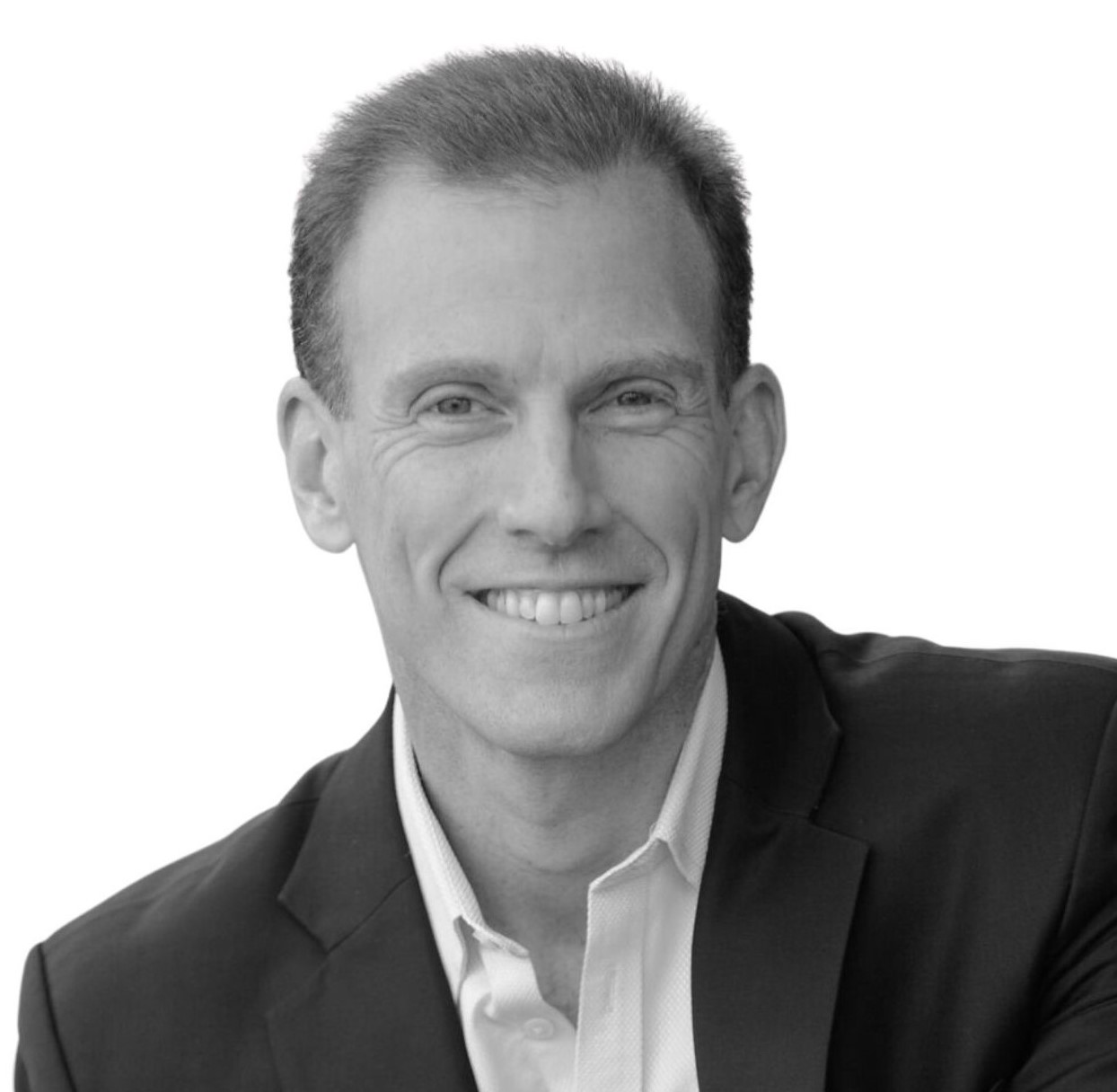Why Investing in the BioRevolution Is a “Big Deal”



Humans have been innovating as long as we’ve been around, but the pace of our innovation is now accelerating rapidly. People are waking up every morning and solving new problems that have not yet been solved by anyone. In addition, we are experiencing a super-convergence of technologies where technological innovations feed other technological innovations in a cycle of mutually reinforcing invention.
The computer revolution, for example, makes the artificial intelligence (AI) revolution possible. The tools of artificial intelligence allow us to unlock secrets of complex human biology that are more complicated than our minds could comprehend on our own. Now, with this understanding of the patterns of biology that have evolved over nearly four billion years of life, we’re able to develop more efficient computer chips that are speeding up our computing power, enhancing our artificial intelligence capabilities and making it possible for us to unlock even more secrets of complex biology.
What Are Some of the Applications of This Transformation?
1. Health care
When people think of the genetics and biotechnology revolutions, they tend to think of health care, for good reason. We’re all familiar with new cancer treatments, new gene therapies and other new approaches to health care that are truly revolutionary. In a big-picture context, what we’re experiencing is a transition from generalized health care, based on population averages, to a world of precision health care, which is based on each person’s individual biology. If we know who you are on a molecular level, then you can be treated not based on your being a human but on you being you. So how do we know who you are?
Well, we need biometric information—electronic health records in more standardized forms. But then we also need to have whole genome sequences, and we are moving toward a world where we are all going to have our genomes sequenced as a foundation of our health care. That should unlock a new world of personalized health care, where our doctors are going to be working collaboratively with artificial intelligence systems because the AI systems will give us access to a level of nuance and complexity that is greater than what our human minds on their own can process.
2. Plant agriculture
We live in a world transformed by agriculture; populations have grown so rapidly due to the capability of our agricultural systems. A big part of that has been the Haber-Bosch process, which creates chemical fertilizers by fixing nitrogen and hydrogen to create ammonia. The “Green Revolution” (with things like new hybridized seeds, modern farm practices and better equipment) has allowed us to triple agricultural plant productivity in the last 70 years.1 Again, it’s why we can have so many humans on planet Earth.
But this success has also come at a cost. We’re cutting down forests—half of all arable land is allocated to agriculture, and about 15% of greenhouse gas emissions are associated with agriculture. With projected population increases on the horizon, business as usual is not going to be sustainable. Agriculture itself is a form of radical biotechnology, and we’re going to need to think about how we can do it in a better and more sustainable way, “better” meaning higher yields with smaller resource inputs. We believe that this cannot be done without the tools of the genetics and biotechnology revolutions.
3. Animal agriculture
Around three-quarters of all of our agricultural activity supports animal agriculture, which is putting a huge strain on the planet.3 Of course, a change in dietary habits (to more plant consumption and less meat consumption) would help. But there are other options, including those aided by biotechnology. There’s a whole new field of cell-cultivated animal products, which means we extract the cells from the healthiest, happiest animals we can find and expand those cells in bioreactors to essentially grow the animal products we want and need in a more sustainable way. Even if just some of our industrial foods start to transition toward other kinds of plant-based meats and cell-cultured meats, it should have a very positive impact.
4. Industrial materials
Currently, the raw inputs that go into our economy tend to be things we cut down or dig up. As populations grow, we can’t continue as we are. The tools of synthetic biology are giving us the capability to shift from “cut down” and “dig up” models to “grow.” We’re seeing that in plastics where there are lots of plastics being grown from different biological seed stocks. You may be familiar with synthetic spider silk, which is an unbelievably versatile new material that is not made from spiders but by synthesis (using the tools of synthetic biology) to create spider silk that’s stronger pound for pound than steel. It can be used for all sorts of things, including buildings and bulletproof vests.
5. DNA as data storage
Our data storage needs have grown exponentially over recent years. We’re already reaching the limits of the current models of silicon-based data storage; if we don’t continually grow our ability to store and process data, we’re going to have a crisis. DNA is the greatest information storage mechanism in history. Information on a computer chip can last 20, maybe 30 years. DNA, under the right conditions, can be read three million years later.4 Unsurprisingly, there’s a lot of investment by the major computer companies going into this field of DNA as data storage.
Accessing This Megatrend
For many decades, I’ve been thinking about the future: the future of health care, genetics and biotechnology. And what the partnership with WisdomTree allows is to translate those insights into actionable steps that can be taken to potentially invest in this future, which I believe is a fundamental story to human habitation on earth.
McKinsey estimates that the BioRevolution will be responsible for somewhere between 2 and 4.5 trillion euros of economic activity per year through 2050.5 So, how can investors potentially access this megatrend?
First, it has to be a distributed bet. For example, look at the early days of the internet revolution. You may have pinpointed AOL as the company that was going to “own the internet.” At such an early point in time, we cannot predict who the winners and losers will be, so it can make more sense to make a distributed allocation—distributed with different company sizes, locations and innovation ecosystems. Second, it’s important to note that the BioRevolution is not just about health care. Today, health care is the most mature of these markets because we’ve invested so much in it and because it’s so important to us. But this same revolution is moving across all of these other sectors.
The BioRevolution is, in many ways, a turning point for our species on this planet. If the 19th century was the century of chemistry, and the 20th century was the century of physics, I believe, the 21st century is the century of biology, where humans will learn to tweak biology with the goal to both serve our growing needs as humans and help us to better protect our planet.
For those looking to consider an investment geared to this particular thesis, the WisdomTree BioRevolution Fund (WDNA), seeks to track the returns of the WisdomTree BioRevolution Index, which is built with this in mind.
1 Source: https://en.wikipedia.org/wiki/Green_Revolution
2 Source: https://www.epa.gov/ghgemissions/global-greenhouse-gas-emissions-data
3 Source: https://www.fao.org/sustainability/news/detail/en/c/1274219/
4 Source: Robert F. Service, “DNA could store all of the world’s data in one room,” Science, 3/2/17.
5 Source: https://www.mckinsey.com/industries/life-sciences/our-insights/the-bio-revolution-innovations-transforming-economies-societies-and-our-live
Important Risks Related to this Article
There are risks associated with investing, including the possible loss of principal. The Fund invests in BioRevolution companies, which are companies significantly transformed by advancements in genetics and biotechnology. BioRevolution companies face intense competition and potentially rapid product obsolescence. These companies may be adversely affected by the loss or impairment of intellectual property rights and other proprietary information or changes in government regulations or policies. Additionally, BioRevolution companies may be subject to risks associated with genetic analysis. The Fund invests in the securities included in, or representative of, its Index regardless of their investment merit, and the Fund does not attempt to outperform its Index or take defensive positions in declining markets. The composition of the Index is governed by an Index Committee, and the Index may not perform as intended. Please read the Fund’s prospectus for specific details regarding the Fund’s risk profile.
Christopher Gannatti began at WisdomTree as a Research Analyst in December 2010, working directly with Jeremy Schwartz, CFA®, Director of Research. In January of 2014, he was promoted to Associate Director of Research where he was responsible to lead different groups of analysts and strategists within the broader Research team at WisdomTree. In February of 2018, Christopher was promoted to Head of Research, Europe, where he was based out of WisdomTree’s London office and was responsible for the full WisdomTree research effort within the European market, as well as supporting the UCITs platform globally. In November 2021, Christopher was promoted to Global Head of Research, now responsible for numerous communications on investment strategy globally, particularly in the thematic equity space. Christopher came to WisdomTree from Lord Abbett, where he worked for four and a half years as a Regional Consultant. He received his MBA in Quantitative Finance, Accounting, and Economics from NYU’s Stern School of Business in 2010, and he received his bachelor’s degree from Colgate University in Economics in 2006. Christopher is a holder of the Chartered Financial Analyst Designation.


